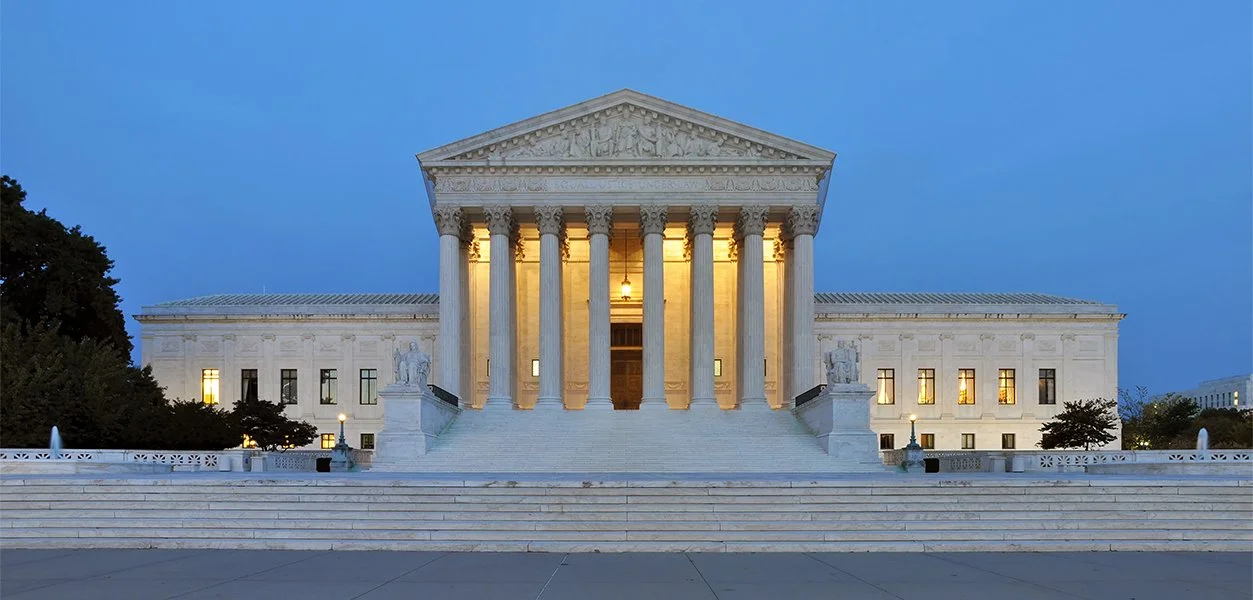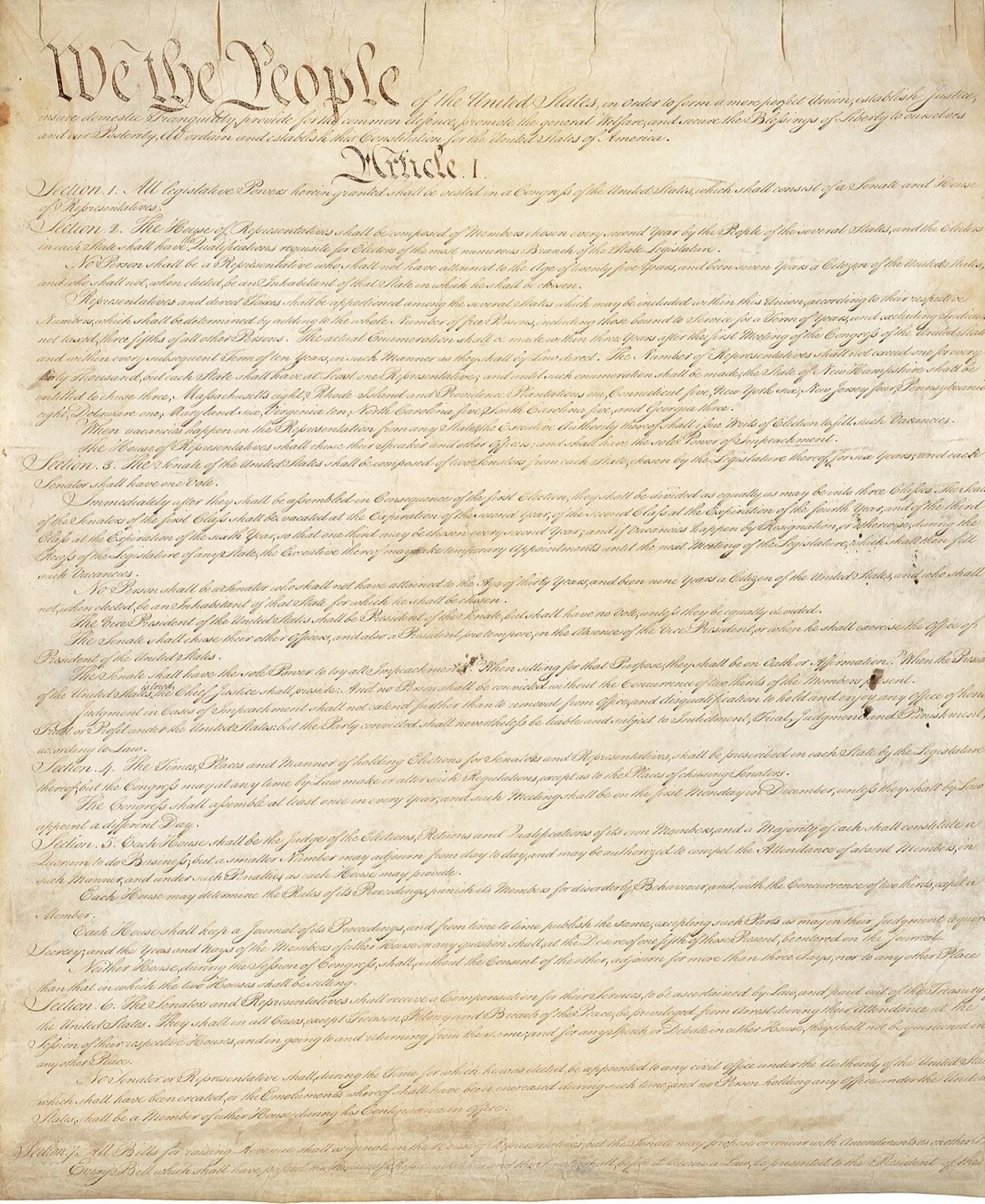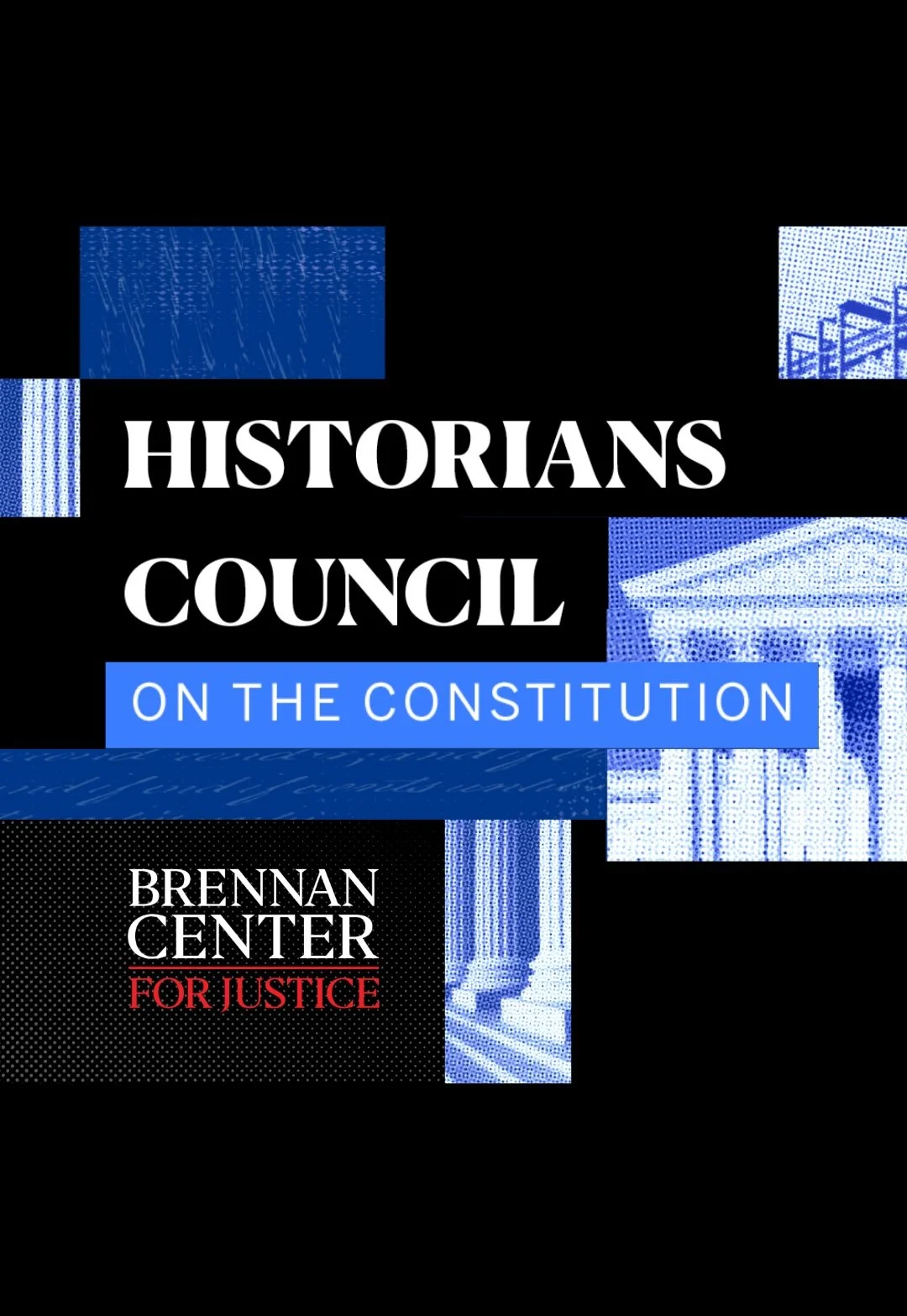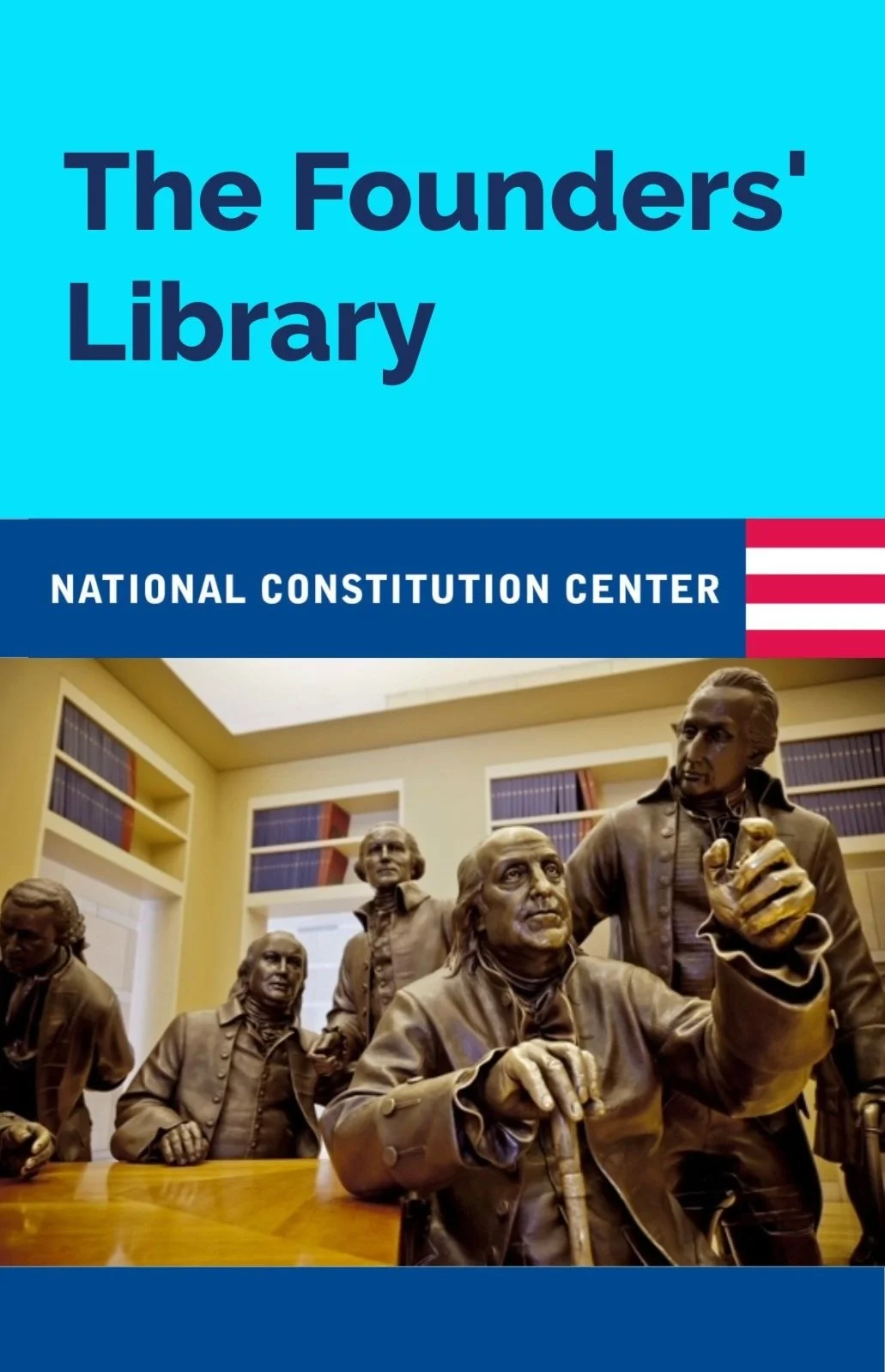Editorials and Blog Posts
“Why is the Supreme Court Obsessed with Originalism?”
Yale University Press Blog | October 21, 2024
“Originalism is the Rage, but Constitution’s Authors had Something Else in Mind”
Boston Globe | October 20, 2018
“Knowing How vs. Knowing That: Navigating the Past”
Process: OAH Blog | April 4, 2017
“Constitutional Originalism and History”
Process: OAH Blog | March 20, 2017
In recent years, the U.S. Supreme Court has repeatedly relied on history to decide major questions of constitutional law. In response to this trend, in 2023 the Brennan Center for Justice created a Historians Council on the Constitution, made up of leading constitutional and legal historians from across the nation. Jonathan Gienapp was among the first to join and has been an active member since, including helping to write several historians’ amicus briefs for the Supreme Court, which are listed below along with prior briefs he signed.
Brennan Center’s Historians Council on the Constitution
-
In the years since this Court’s decision in Seila Law LLC v. Consumer Financial Protection Bureau, 591 U.S. 197 (2020), legal historians—including originalists—have unearthed a rich body of evidence challenging the conventional wisdom concerning the scope of the President’s removal powers at the Founding. Revisiting not only the Framers’ intellectual influences, but also their driving philosophical concerns and political incentives, this scholarship explains that removal authority was not understood to be vested exclusively in the President as a matter of settled constitutional law, but rather was permissibly exercised by various actors in various ways, intentionally not settled by the text of the Constitution but governed by practical and policy considerations.
-
Former President Trump is charged with conspiring to thwart the peaceful transfer of power following the 2020 election. In his defense, he asserts that a doctrine of permanent immunity from criminal liability for a President’s official acts, while not expressly provided by the Constitution, must be inferred. To justify this radical assertion, he contends that the original meaning of the Constitution demands it. But no plausible historical case supports his claim.
-
There is a longstanding American tradition of regulating firearms possession by people who are perceived to be dangerous or otherwise threaten to disrupt the public peace. The tradition of curtailing the right to keep and bear arms of those perceived as threats to public safety and peace dates back to the common law, and continued through the colonial and Founding Eras. In some cases, dangerousness was evidenced by acts of violence, such as those who participated in Shays’ Rebellion. But actual violence was not a prerequisite to disarmament; the perceived potential for violence to others or disruption to the social order was enough.
-
The original public meaning of the Elections Clause did not give the state legislatures exclusive power to regulate congressional elections, unchecked by the state constitution or other branches of state government. Nothing in the records of the deliberations at Philadelphia or the public debates surrounding ratification supports that contention. There is no evidence that anyone at the time expressed the view that Petitioners now espouse; nor would anyone have attempted to disprove an idea that had never been broached. Petitioners' interpretation is also historically implausible in view of the framers' general fear of unchecked power and their specific distrust of state legislatures. There is no plausible eighteenth-century argument to support Petitioners' view.
-
Neither English nor American history supports a broad Second Amendment right to carry firearms or other dangerous weapons in public based on a generic interest in self-defense. For centuries, both English and American law have restricted individuals’ right to publicly carry arms—especially in populated places and especially in the absence of a special need for selfdefense—in order to preserve the public order and public peace.
-
Fair and effective representation was the bedrock principle of constitutional governance in the new American republic. The historical record surrounding the Constitution offers ample evidence of that: The Founding generation forcefully rejected the British system of government, where legislative corruption and entrenchment of factions eroded meaningful representation, and instead designed a form of government that would be dependent on the People and responsive to the People. Americans were acutely aware of the dangers to that form of fair and effective representation posed by what we now call gerrymandering. They were particularly concerned that legislative factions acting for their own hyperpartisan interests would manipulate election rules and stifle political expression in order to entrench themselves.
-
Partisan gerrymanders are of two types: drawing districts of unequal population size and manipulating district lines for partisan ends. The use of either or both of these methods can create profound distortions and undemocratic entrenchment of one political group or party. Both types of gerrymanders have been employed at various times throughout American history—sometimes separately, sometimes in combination. From a historical perspective, both types of gerrymanders conflict with the vision of actual representation that was central to the Framers
Gienapp provided expert testimony in Dinner Table Action v. Schneider, litigation challenging an approved 2024 Maine ballot initiative to limit SuperPACs. Gienapp’s declaration focused on the original meaning and understanding of the First Amendment as it might relate to campaign finance regulations, detailing how the Founding generation thought about constitutional rights and their enforcement.
Read his Declaration here.
Expert Witness Work
National Constitution Center’s Founders’ Library
The National Constitution Center compiled the Founders’ Library: a collection of texts that have shaped the American constitutional tradition from its origins to present. Gienapp was one of the two scholars responsible for selecting and introducing the texts from the Founding Era (1750-1790).
Watch the National Constitution Center Town Hall: “The Founders’ Library: Intellectual Sources of the Constitution”
Listen to the National Constitution Center’s We the People podcast: “The Intellectual Inspirations Behind the Constitution”






